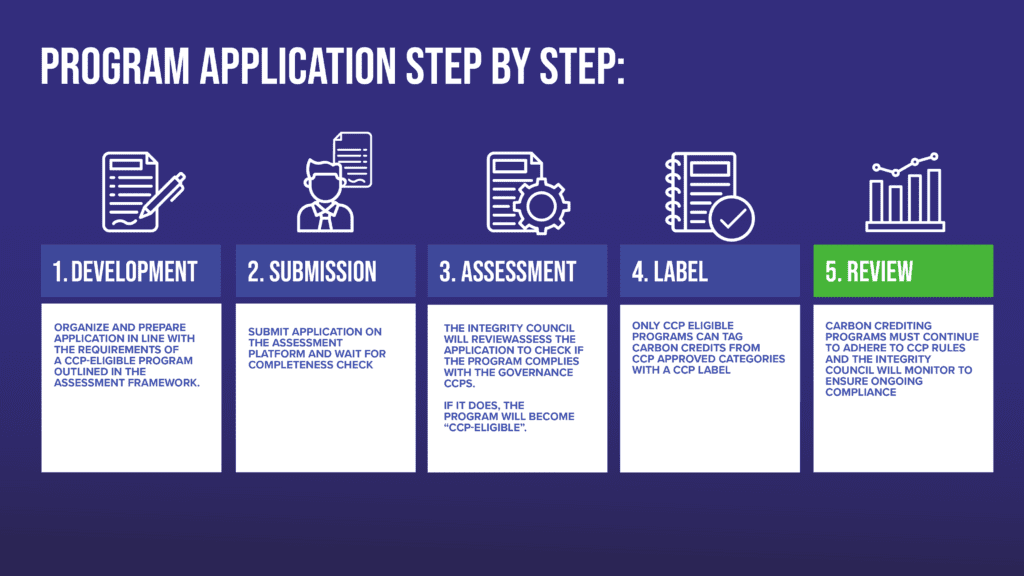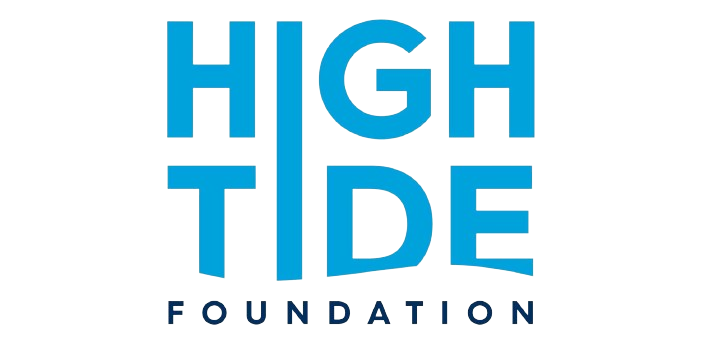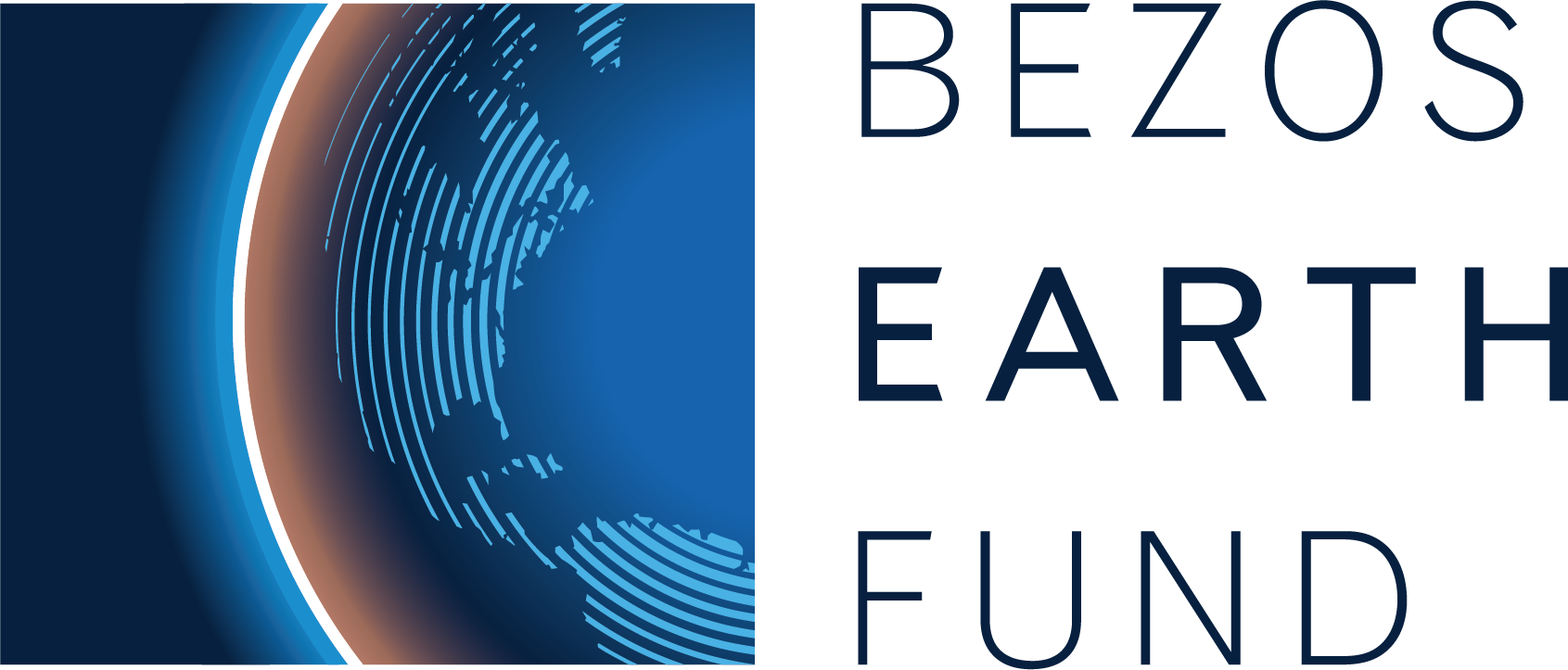How we assess carbon-crediting programs
The assessment of carbon-crediting programs for CCP eligibility is one part of the ICVCM’s double tick process.
The Integrity Council is now assessing:
- Carbon-crediting programs to determine if a program can be approved as CCP-Eligible.
- Categories of carbon credits, to decide if a Category of carbon credits can be labelled as CCP-Approved by a CCP-Eligible program.
Once evaluations are complete, the results are presented to the Governing Board for a formal decision.
Carbon-crediting programs (Programs) have actively collaborated in the development of the Core Carbon Principles (CCPs) and our Assessment Framework.
We assess programs internally, focusing particularly adherence to CCP criteria for effective governance, transparency, tracking and robust independent third-party validation and verification. Programs must also meet CCP rules on robust quantification of emission reductions and removals, no double counting and sustainable development benefits and safeguards.
Programs that are CCP-Eligible will only be able to tag CCP-Approved credits from Categories that ICVCM has approved. To ensure CCP-labelled credits can enter the market as soon as possible, ICVCM will be assessing Categories of credits in parallel with its assessment of Programs.
What does the Integrity Council mean by ‘Program’?
For the process of assessing whether those applying to become CCP-labelled are a Program under ICVCM terminology, we ask potential Programs to answer the following two questions:
- Does your organisation develop and maintain a Standard that is used to register/approve mitigation activities?
Please provide the name of the Standard and a link to the Standard documents. - Does your organisation issue carbon credits from mitigation activities following this named Standard?
Please provide a link to the registry containing the mitigation activities and carbon credits generated via your Program.
This is asked as part of the assessment process. If your organisation can meet these requirements, and prove them, it is likely that you will be considered as a Program.
Programs will then be invited to complete an application via the Assessment Platform and submit evidence and documentation to show how they meet the criteria.
Answers to most questions can be found in the user guide (accessible to registered applicants) – otherwise applicants are invited to raise a ticket via the Assessment Platform or email [email protected].
Successful applicants will be assigned a Relationship Manager – their main point of contact within the ICVCM throughout the assessment process. The Relationship Manager will share updates on progress, request additional information or action from the Program, resolve any queries the Program may have and update on any changes to the timeframe for assessment, all via the application platform.
The Relationship Manager will be available for an optional kick-off meeting with the Program and monthly update calls with the Program will also be offered.
Applications will be accepted on a rolling basis.
Who can apply for assessment?
Programs issuing credits that are traded on the voluntary carbon market can apply for CCP assessment, which will confirm whether they meet the program criteria set out in the Assessment Framework.
We’ve designed a streamlined process for Programs that are already approved as CORSIA-Eligible. To be CCP-Eligible, Programs that are already CORSIA-Approved need only to provide evidence that they meet the CCP’s additional high-integrity criteria around effective governance, credit tracking, transparency and robust, independent third-party validation and verification.
If a Program isn’t already approved as eligible for CORSIA, that Program can still apply for assessment, but it will need to provide evidence that it meets both the CORSIA requirements as well as the additional CCP criteria.
All Programs, regardless of CORSIA status, will have to provide evidence they meet the criteria for other CCPs including, but not limited to, sustainable development benefits and safeguards, no double-counting and robust quantification.
Once a Program has been assessed as CCP-Eligible, it can then apply CCP labels from Categories that have already been CCP-Approved, and to additional Categories as they become approved.
How does the Assessment Platform work?
Applicants are required to provide evidence in line with the requirements of the Assessment Framework. Once the submission of information, documentation, and evidence by Programs is complete, they will be notified and the application will proceed to the assessment stage.
A step-by-step process
- Development: Work on your CCP eligibility in line with the requirements of the Assessment Framework.
- Submission: Upload your application for assessment via our Assessment Platform.
- Assessment: If your Program meets the criteria laid out in the Assessment Framework, it will be assessed as CCP-Eligible.
- Label: Programs we approve will be able to use the CCP label on Categories of credits that we have approved.
- Review: Following CCP approval, Programs and/or Categories are subject to regular monitoring to ensure continued high integrity.
Applications will be processed in the order in which they are confirmed as complete and are treated as confidential during the assessment.
The Integrity Council’s Assessment Platform includes a robust chat and ticketing system for applicants to communicate directly with us and any questions will always be followed up until marked as resolved.
Please note – all applications must be made in English.

You can find the questions included in the Carbon-Crediting Program Assessment Process below:
Is there anything else that applicants need to know?
- The assessment process is estimated to take a minimum of two months for CORSIA-eligible Programs and four months for non-CORSIA Programs, subject to operational considerations.
- We have started to announce decisions of our assessments.
- A PDF version of the application questions on the Assessment Platform is available as a reference guide.
- Applications will be processed in the order they are found to be complete
- Completed applications will be publicly available on the ICVCM website.
- Assessment of a Program application is treated in the strictest confidence.
- Programs may withdraw Program applications at any time before a final decision has been taken by emailing [email protected].
Programs will be asked to abide by standard ICVCM terms and conditions. There are three possible outcomes from the Program assessment process:
- Program is approved as CCP-Eligible.
- Program is approved with remedial actions to be completed within two months.
- Program is rejected (rationale will be shared with the Program; the Program can reapply in six months).
Programs which the ICVCM decides do not meet the criteria for CCP certification can appeal the decision by requesting a hearing with the Governing Board where they can present further evidence supporting their case for CCP-Eligibility.

Ready to apply?
Get in touch with the ICVCM
How we assess categories of carbon credits:
Learn about the other part of the ICVCM’s double tick process – the assessment of categories of carbon credits.






